Going off-grid - could you live in a house like this?
- Published
Freda and Andy Power decided to build an entirely eco-friendly house created with recycled material
An advert on an online message board asks: "Anyone interested in living in an off-grid straw bale house?"
It adds: "No rent, all I'm asking is taking care of the house, and my two donkeys, two pigs (pets!), five hens, two cats and two dogs."
It's not your average property listing, but the owners, by their own admission, are not your average couple.
Both originally from Munich, Andy and Freda Power met in Ireland, by chance, when he was hitchhiking in the rain on holiday in County Kerry.
They married, and after two years of fruitlessly searching for a cottage to renovate, the pair decided to build an eco-friendly house themselves.
Their home is situated on the Roscommon and Galway County border in Ireland and there are no neighbours for almost a mile. The nearest village is eight miles away.
But it's not just the remote location that makes the property special - almost everything inside is made from recycled or salvaged material.
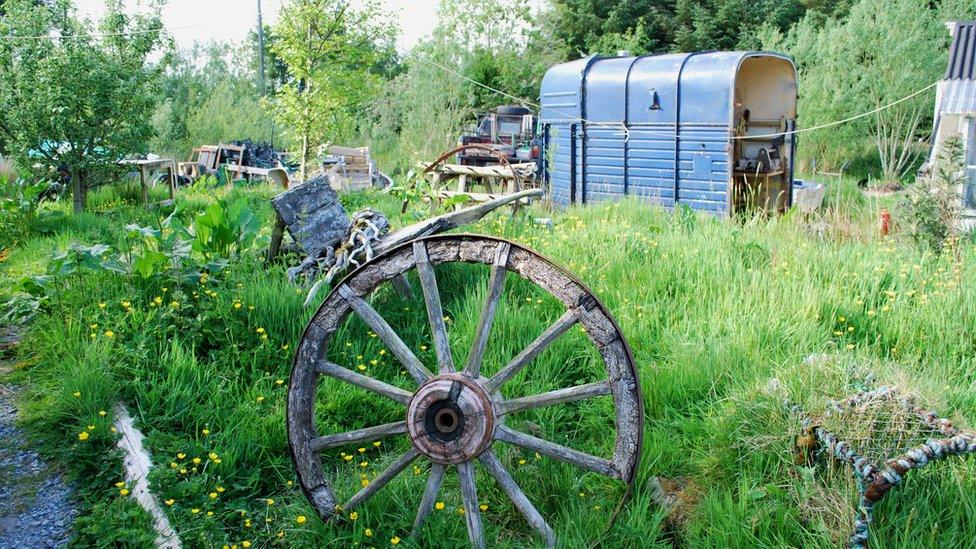
The cottage furniture is either recycled or welded by Andy in a horse-box workshop in the garden
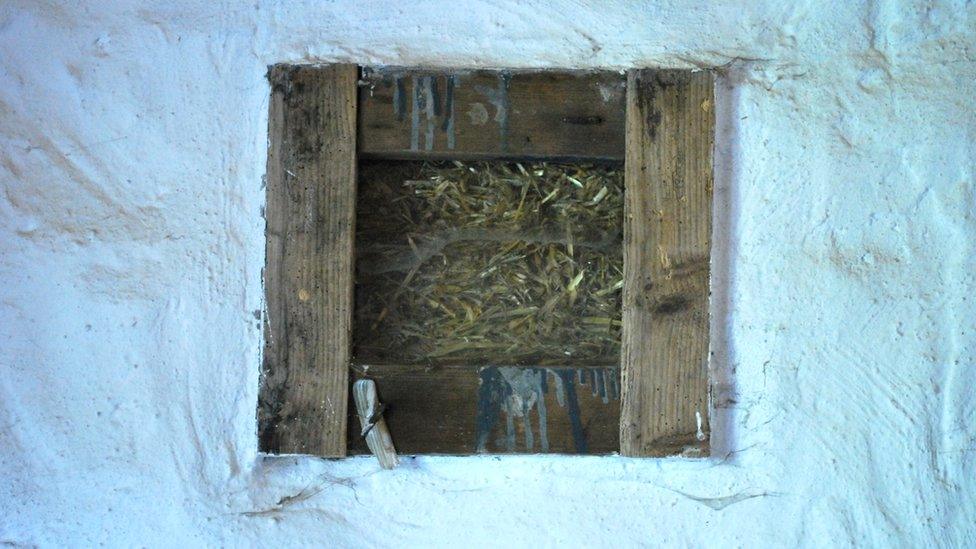
A small window reveals the straw insulation behind the wall's plaster
The couple, who have 16 pets, grow all their fruit, vegetables and herbs, and the house is powered by solar panels and a wind turbine.
Andy explains: "We have no USB connections, no water, no sewage, no bin service. We do everything ourselves."
A tree, rooted in the earth, grows in the middle of the guest bedroom.
The structure itself is made of salvaged timber beams, lined with small stone walls. Straw bales are then stacked on top, and the walls coated with lime plaster.
'Just try it'
Remarkably, Andy is a social worker without a background in construction.
"The main thing is we are a little bit crazy and brave - lots of people tell me: 'I couldn't do that,'" he says.
"But when I ask them if have they ever tried - they say: 'No'."
The whole process took three-and-a-half years.
"I bought some good books but, to be honest, the whole thing wouldn't be possible without the internet. We get so many ideas from websites all around the world," he says.
Many of the cottage's quirks are not immediately visible. The oak in the kitchen is from an abandoned lock-keeper's house in Dublin.
Feature windows in the hallway are actually converted washing machine doors, installed after the motor was used for a wind turbine.
"The whole house sits on a layer of wine bottles," he said.
"Under the floor there are between 4,000 and 5,000 bottles. But I didn't drink them all, I collected them from my colleagues over three years.
"Insulation is nothing else but trapped air, so the empty bottles sit in a four-inch cavity. Don't ask me if it works, but we tried it!"
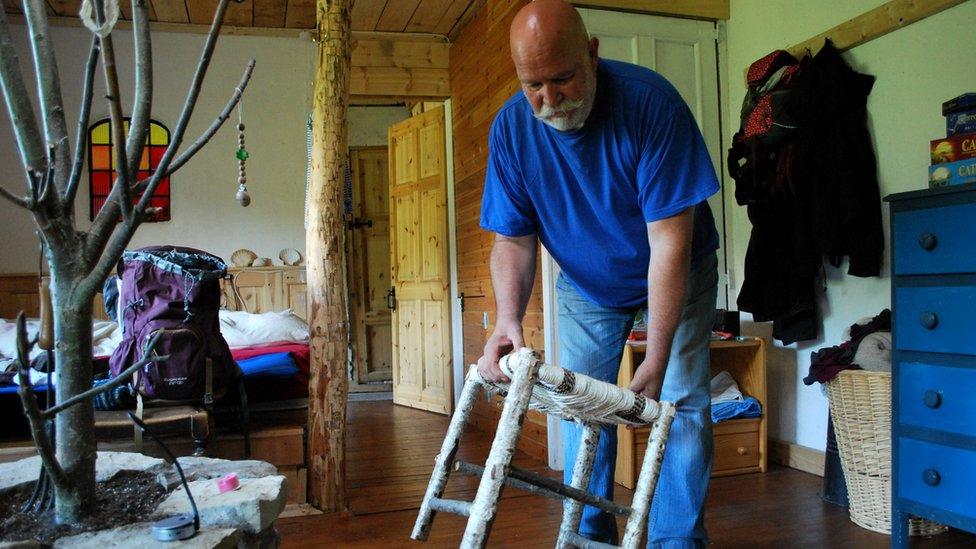
A tree grows in the middle of the guest bedroom, with a stool and bed frame made from branches
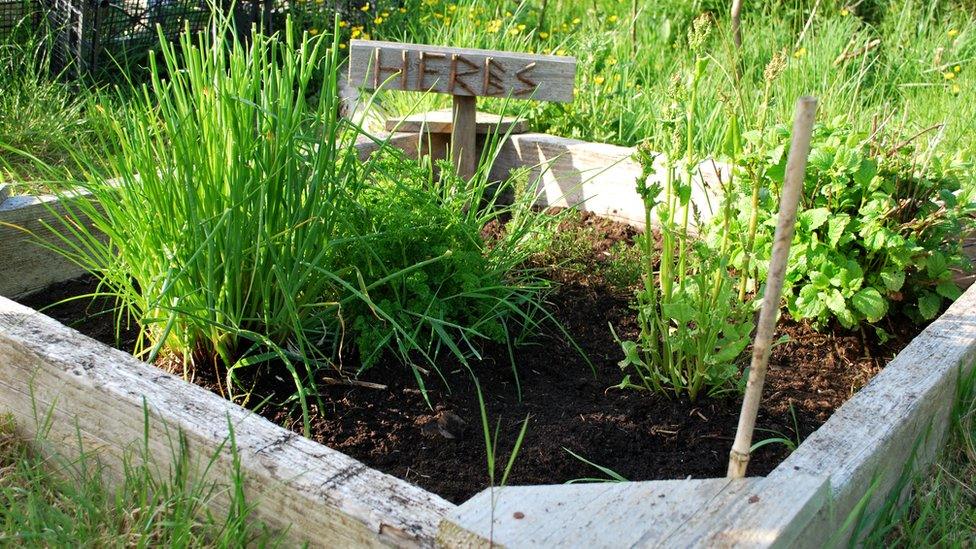
While not being totally self-sufficient, the couple grow all their fruit, vegetables and herbs
Even the couple's bed was soldered by Andy from leftover iron and timber. "With a house like this you can't go to Ikea - it just doesn't fit," he says.
"The fridge is a bit of an issue, because it needs electricity all of the time."
He explains that instead of a traditional fridge, a bucket is buried beneath the ground on a hoist system made from old farm equipment.
"It is always between eight and nine degrees. Milk lasts for a few days. Meat could be tricky, but I'm a vegetarian."
Sewage is treated in an on-site septic tank, with the overflow going into a reed bed in a nearby field. And it is totally odourless.
Bits of plastic and driftwood from Irish beaches are refashioned by Frieda into the cottage's artwork. The kitchen stool is a welded tractor chair with spanners for foot rests.
"Some people call it rubbish, but I call it material with potential," says Andy.
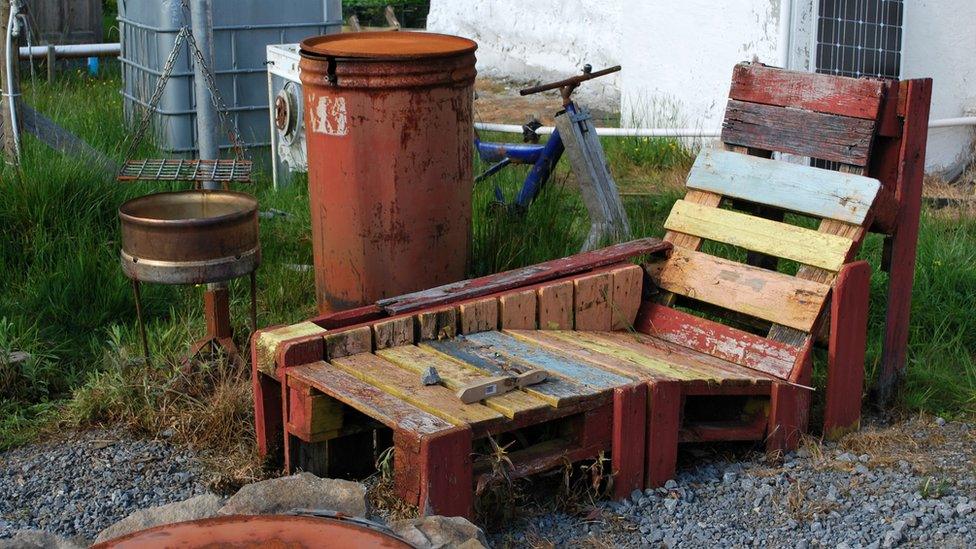
Wood pallets are refashioned into garden furniture, even a swinging chair
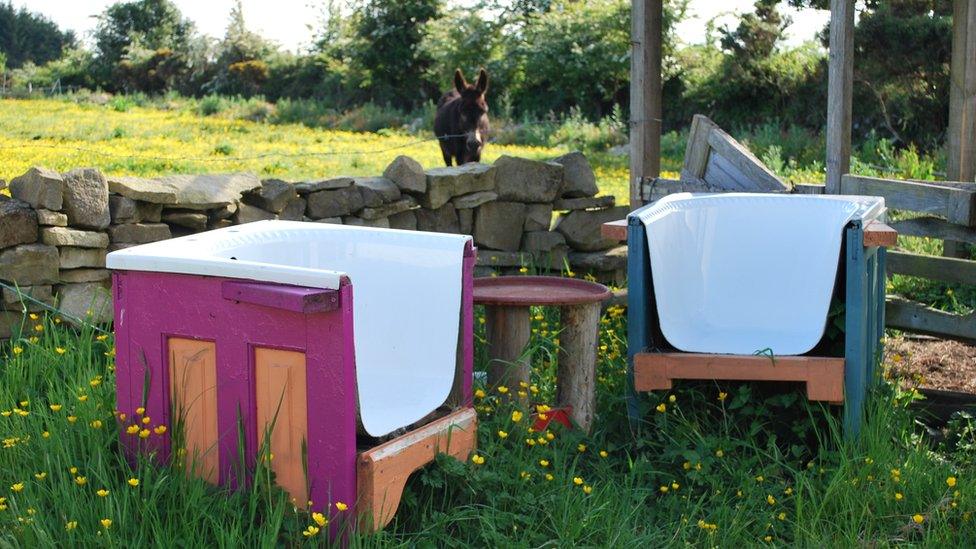
Lawn chairs made out of sawn-off baths are among their garden furniture
The Powers have decided to go travelling and have been looking for someone to maintain their property and animals while they are away.
They plan to go to Ecuador to teach in a school in the jungle, which is only reachable by canoe.
It's a way of life most would not be able to adapt to, but a young couple from Dublin have answered the Powers' advertisement and are willing to try the off-grid life for themselves.
Asked about the appeal of such simple living, the Powers say: "You have to be a little bit different. It can be lonely, and people either hate it or love it - there's nothing in between.
"It's quite practical living - there is a lot of work involved in the daily routine. But we love the freedom to do whatever."
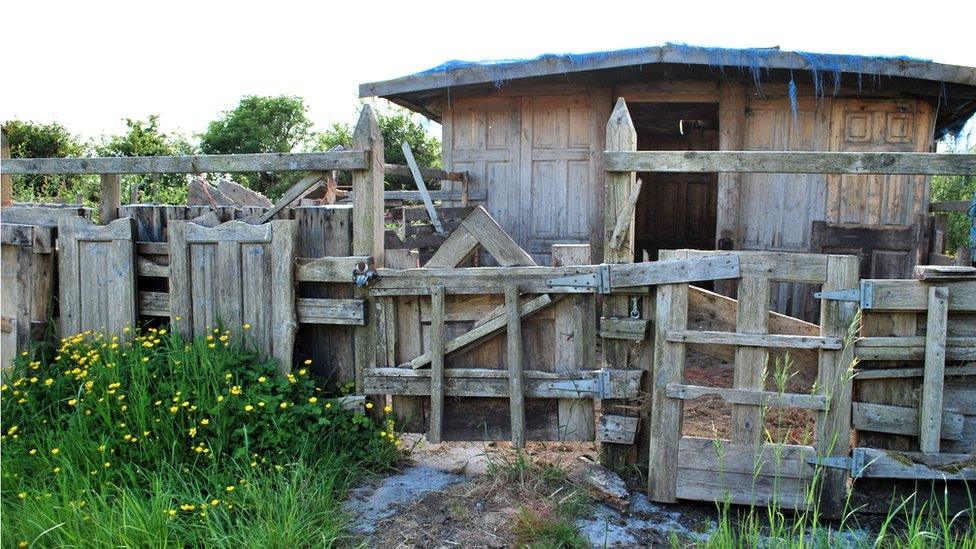
The animal paddock is built with 270 recycled doors bought in bulk
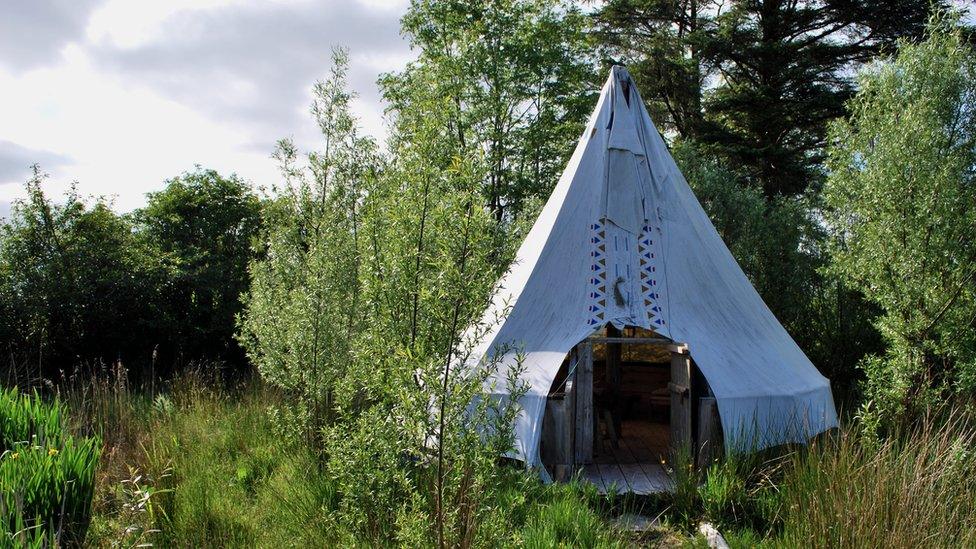
The cottage has several outbuildings and a teepee, which Andy uses for his social work with children